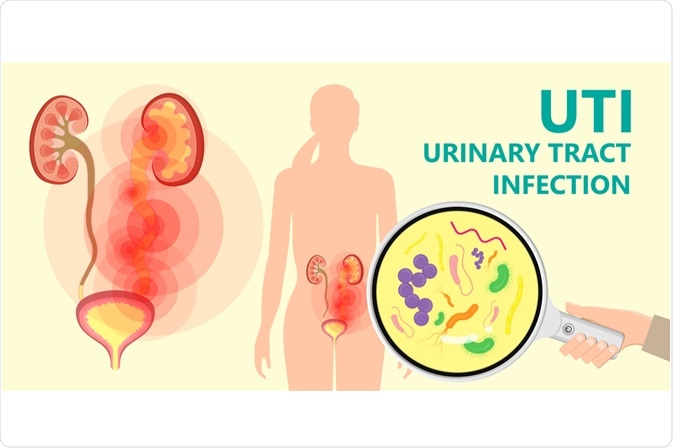The prevention of a urinary tract infection (UTI) is important, particularly for those individuals who are frequently affected by an infection.

Image Credit: rumruay / Shutterstock.com
There are several areas that can help in preventing bacteria from proliferating in the urinary tract and causing an infection. These include proper use of the toilet, sexual activity, general hygiene, and water consumption.
Toilet use
The way the genital area is cleaned after going to the toilet is of utmost importance to prevent an infection. The area can be washed with water or wiped with toilet paper.
If using toilet paper, it is essential that wipes start at the front and move to the back. For more than one wipe, a new piece of toilet paper should be used each time to avoid the transfer of bacteria from the back to the front.
It is also important to empty the bladder frequently and avoid long intervals without urinating. This is because bacteria have a longer window of opportunity to move up the ureters to the bladder where the infection can proliferate. It is recommended to urinate at least every four hours, even if there is no urge to urinate.
Sexual activity
Sexually active women are more likely to get a urinary tract infection as compared to those who are not sexually active. Therefore, preventative methods during some sexual activities may be beneficial. In particular, intercourse that involves the anal area is likely to result in the transfer of bacteria to the urinary tract.
To prevent this, it is best to work from front to back, and not in reverse. Using condoms and changing the condom when moving from the anus back to the vagina can also help. Additionally, making sure to urinate after sexual activity is beneficial.
How to Prevent a Urinary Tract Infection
General hygiene
Good hygiene practices may be helpful in the prevention of UTIs. This is largely because some bacteria that reside in the anal region have the potential to cause an infection of the urinary tract if they are transferred to the urethra. This can happen easily, as the anus and the urethra are positioned anatomically close to each other.
Long baths are associated with a higher risk of infection, due to the possibility of bacteria from the anal area moving into the water and into the urethra. Instead, showers are recommended for individuals who are frequently affected by UTIs.
Additionally, sanitary napkins used when a woman is menstruating can promote the growth of bacteria and may lead to a UTI. To prevent this, using tampons or making sure to change the sanitary napkin frequently may help. Tight fitting clothes can have the same effect, creating conditions that promote bacterial growth and should therefore be avoided.
Water intake
Drinking more water ensures that the urinary tract is always working. Additionally, increased water intake causes individuals to urinate more often, thus allowing the urine and any bacteria to be pushed out of the body. Sufficient water intake is indicated by very pale yellow colored urine and is a simple step to help prevent the occurrence of a UTI.
Cranberry juice also appears to prevent infections in some people, although there is not strong evidence for this.
References
Further Reading
Last Updated: Mar 24, 2021